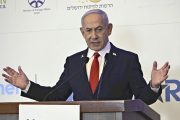
Major oil producer Saudi Arabia has reduced February’s price of crude for buyers in all regions, Reuters and Bloomberg reported on January 7, quoting a company statement.
Based on the reports, state producer Saudi Aramco has cut its flagship Arab Light crude oil price to Asia, the country’s primary market, by $2 to $1.50 a barrel above the benchmark, its lowest level in 27 months. Besides, the company also slashed oil prices for February deliveries to northwestern Europe, the Mediterranean, and North America.
The decision came prior to the traditional February and March drop in oil consumption, which analysts contend may further raise the accumulation in oil inventories that has worried market participants for months.
In light of this months-long situation, the OPEC+ group of major oil-producing countries, led by Russia and Saudi Arabia, has adopted a series of steps in recent months to back crude prices and stabilize the global oil market. The most recent move involved considerable output cuts (around 2.2 million barrels daily) which the group agreed last month to extend into the first quarter of 2024.
Western sanctions on Russia for the latter’s actions in Ukraine, together with the recent Israeli-Hamas war in Gaza, have resulted in a volatile global oil industry.
Oil prices dropped by more than one percent on January 8 after Saudi Arabia’s announcement. Global benchmark Brent crude fell 1.21 percent to $77.80 a barrel at around 07:30 GMT, and U.S. benchmark West Texas Intermediate dropped 1.35 percent to $72.81 a barrel.
Citing U.K. government officials, the Financial Times (FT) reported on December 8 that Saudi Arabia shelved plans for Crown Prince Mohammed bin Salman, known as MBS, to visit London days before he hosted Russian President Vladimir Putin in Riyadh.
London and Riyadh had been in talks about a potential visit of the Crown Prince for months already. U.K. officials said both sides had been working toward December 3 as a possible date, but the plans were suddenly scrapped.
Rather, MBS hosted Putin in Riyadh on December 6, amid the Russian president’s one-day tour of the region — his frist trip to the Middle East since the beginning of Russia’s conflict with Ukraine in February 2022.
The proximity of the Crown Prince’s visit to Britain, which was apparently canceled, and Putin’s Middle East tour raised eyebrows among senior U.K. officials and MPs. Former Tory leader Sir Iain Duncan Smith characterized the development to FT as “astonishing,” and the apparent postponement as a “snub.”
Another senior Tory MP, Robert Courts, said the postponement of the visit was “a concern because it suggests a UK diplomatic failure in the face of a coordinated diplomatic offensive by Putin.”
“The UK should urgently review the resources and strategy behind its foreign and defense policy to prevent the slide of states towards our strategic competitors,” he stated.
Nonetheless, Saudi Arabia’s ambassador to the U.K., Prince Khalid bin Bandar, rebuffed any links between the canceled visit and Putin’s trip, maintaining that “anyone familiar with the UK-Saudi relationship will know that the suggestion of a snub is nonsense.”
“The relationship is as strong as it has ever been and will remain so. Those wishing to interpret things differently are sorely mistaken,” he told FT.
The U.K. Foreign Office neither confirmed nor disavowed the postponement when contacted by FT for comment, with its spokesperson stating, “It is not for the UK to comment on the diplomatic engagements of other countries. We work closely with Saudi Arabia across a range of areas, including on providing support to Ukraine and addressing the current crisis in Israel.”
Meanwhile, German Foreign Minister Annalena Baerbock announced on Sunday, January 7, that her country has shelved its opposition to the sale of nearly 50 Eurofighter Typhoon warplanes to Saudi Arabia.
Baerbock’s Green party has steadily abandoned its long-standing policy of pacifism since the Russia-Ukraine conflict intensified in February 2022.
In 2018, Germany ceased all arms sales to Saudi Arabia after Riyadh’s war in Yemen and the murder of journalist Jamal Khashoggi. At the time, Saudi Arabia had taken delivery of 72 Eurofighter Typhoon aircraft, but Germany’s embargo left the remaining 48 ordered by the Kingdom in limbo.
Baerbock said that “the world, especially here in the Middle East, has become a completely different place” since Hamas staged its attack on Israel in October.
The German minister added that offering Saudi Arabia the jets would make a “key contribution” to Israel’s security, presumably by deterring Saudi Arabia’s and Israel’s chief geopolitical rival, Iran.
Notably, the Typhoon deal would also “help stem the risk of a regional conflagration,” she added, concluding that “we do not see the German government opposing British considerations for more Eurofighters for Saudi Arabia.”
The Eurofighter project is a joint venture by France, Germany, Italy, and the U.K. Thus, any one of these partners can veto its sale to foreign customers. The 72 Typhoons already given to Riyadh, plus the 48 in limbo, would all be sold by the U.K.
However, it remains uncertain as to when the Eurofighter sale will take place. A German government spokesperson told Politico on January 8 that there is presently no tender procedure in place.
Germany is the world’s fifth-largest arms exporter, as per figures by the Stockholm International Peace Research Institute. Saudi Arabia is the second-largest arms importer.
On January 2, Saudi Arabia officially declared that it has joined the BRICS+ group, with the news carried by state TV.
Riyadh has been in talks regarding its accession to the bloc for months, with Foreign Minister Prince Faisal bin Farhan announcing last August that all the details on the move would be assessed before an “appropriate decision” was taken.
At the time, the foreign minister lauded the BRICS group as “a beneficial and important channel” for boosting economic cooperation between member countries.
The group, which until January 1 included Brazil, Russia, India, China, and South Africa, welcomed five new members on New Year’s Day. Besides Saudi Arabia, BRICS now includes Egypt, Ethiopia, Iran, and the UAE. Another prospective member, Argentina, made an abrupt U-turn on its accession plans after Javier Milei won the presidential election in the country late last year.
Moscow has assumed the one-year rotating presidency of BRICS, with President Vladimir Putin promising to “facilitate the harmonious integration” of new partners. Some 30 other countries have already voiced their intent in joining the group’s activities in one form or another, Putin pointed out.
The group is poised to expand even more later this year, with Venezuela hoping to become a permanent member at the next summit in Russia in October 2024.
In an interview published on January 1 with the Spanish-language edition of Le Monde Diplomatique, Venezuelan President Nicolás Maduro posited that BRICS represents “humanity’s future,” given its vast economic power.
As per IMF figures, the expanded BRICS now exceeds the G7, an informal group of developed countries, in terms of GDP at purchasing power parity, contributing to 36 percent of the world total.
Maduro also slammed the move by Milei to pull Argentina out of BRICS, arguing that Milei’s move was “one of the clumsiest and stupidest things Milei has done” to his country to date. With his decision, Milei has effectively taken the country back to the 19th century, seeking to transform it into a “vassal of the imperial unipolar world,” Maduro suggested.
In late December, Milei spokesperson Manuel Adorni verified media reports that Buenos Aires had sent formal letters to all five founding members of BRICS. The messages, which various media outlets claim to have seen, stated that the new Argentinian government does not deem BRICS membership “appropriate at this time.”




